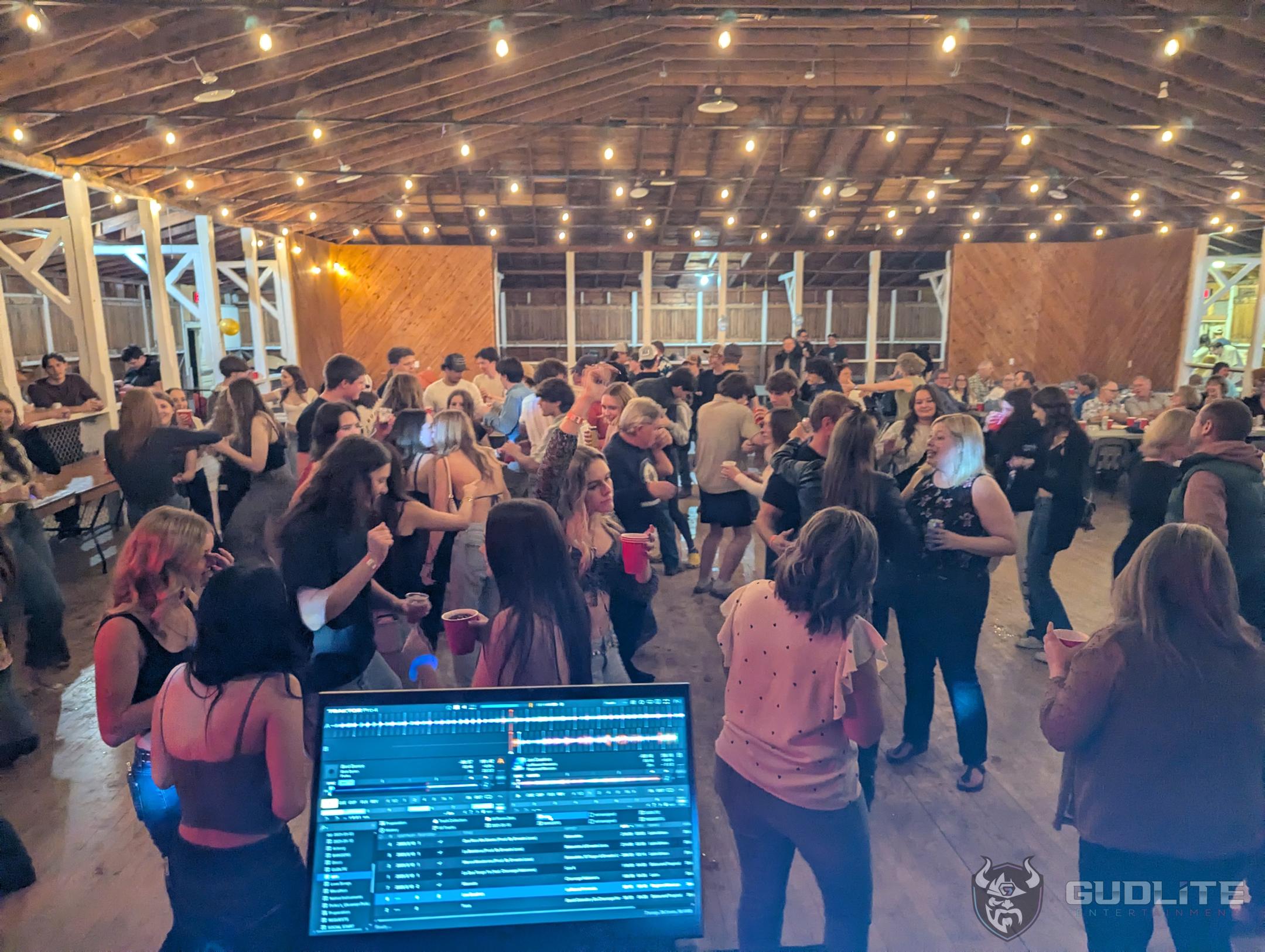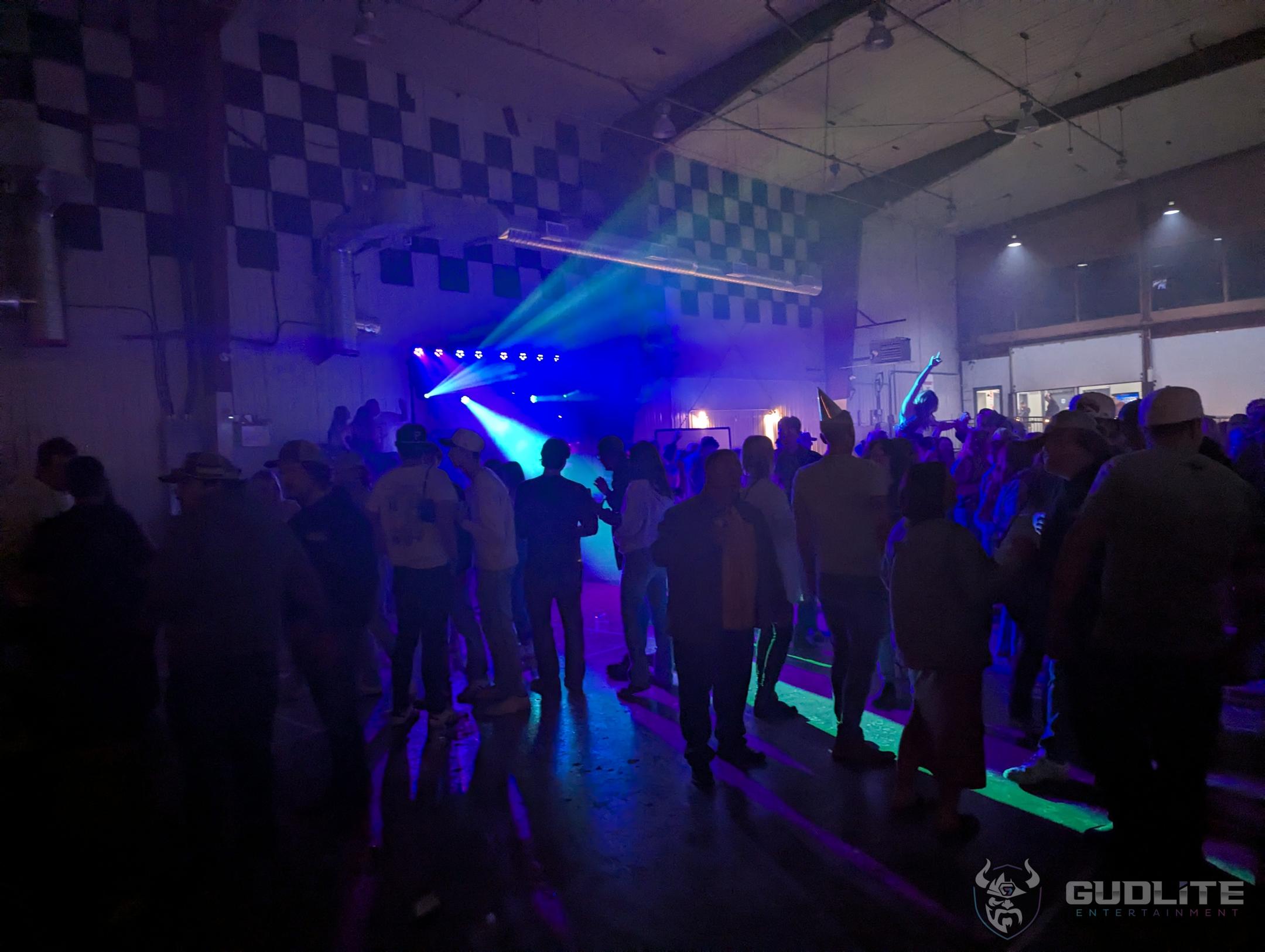Plan a wedding social that brings everyone together
A Manitoba wedding social is more than a fundraiser. It's a celebration of community, connection and support. Whether you're planning a small gathering or a full-scale social, our team is here to help you create a night that feels fun, welcoming and true to who you are as a couple.
We've supported countless wedding socials across Manitoba, and we've learned what works, what doesn't, and how to make the night feel effortless. Below are our best tips to help you plan a successful event and how we can help bring it all together.
Ready to plan your soundtrack?
Check out our social packages. No matter which package you choose, you'll get clear, volume appropriate sound and a professional DJ who keeps the party moving all night.

choosing the right venue
Your venue sets the tone for the entire night. Look for a space that:
Community halls, legions and recreational centres across Manitoba are popular choices and we've worked with a lot of them. If you're unsure about a venue, we're happy to share our experience.
Planning the late-night lunch
The late-night lunch is a Manitoba social tradition. It keeps guests energized and encourages them to stay longer, helping with the fundraising. There are many places that offer social late lunch packages, from deli meats and cheese to pizza, and they can often help you choose the right amount of food for the number of guests you expect.
Common options include:
Keep it simple, affordable and easy to serve.
Music that keeps the room alive
Every crowd is different, and every social has its own personality. We read the room, take requests and keep the energy where it needs to be throughout the night.
You can expect:
Whether your social is in Arborg, Gimli, Winnipeg, Selkirk, Stonewall, Winkler, Portage, Kenora or anywhere across Manitoba and Northwest Ontario, we bring the same level of care and professionalism.
Tickets & Promotion
A strong turnout starts with strong promotion
Tickets
Promotion
Promotion is likely the most effective way to generate interest in your social. Use all your available options such as:
Building a prize table that works
Your prize table is a major draw. Consider:
Keeping the night running smoothly
Socials have a lot of moving parts: raffles, draws, announcements, late-night lunches and more. Our team can help you with the timing of your event to keep everything on track and running efficiently. A smooth flow keeps guests engaged and keeps the energy high.
Security and safety
A safe event is a successful event. Consier:
A little planning goes a long way.
Ready to plan your social?
We'd love to help you create a night that feels fun, welcoming and uniquely yours. Whether you're looking for music, atmosphere or support with the flow of the night, our team is here to make your social unforgettable.

